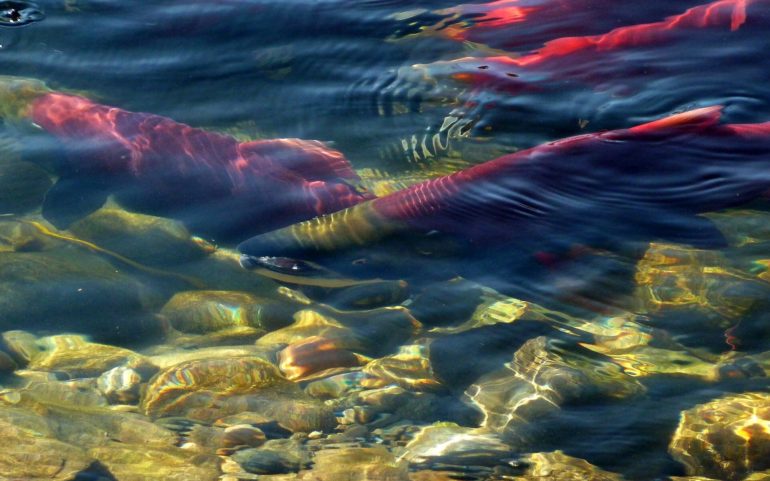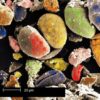Ancient Indigenous fishing practices can be used to inform sustainable management and conservation today, according to a new study from Simon Fraser University.
Working with the Tsleil-Waututh Nation and using new palaeogenetic analytical techniques developed in SFU Archaeology’s ancient DNA lab, directed by professor Dongya Yang, the results of a new collaborative study featured in Scientific Reports provides strong evidence that prior to European colonization, Coast Salish people were managing chum salmon by selectively harvesting males.
Selectively harvesting male salmon increases the overall size of the harvest, as male salmon are bigger than female salmon. It also helps ensure successful spawning as one male can mate with several females. This allows fisheries to maximize the size of their harvest without negatively impacting future returns.
“This management practice is also described in Coast Salish knowledge and, through archaeology, we were able to extend the time depth of this practice by 2,000 years,” says Thomas Royle, a postdoctoral fellow working in the lab.
The research team applied the new palaeogenetic methods to archaeological salmon vertebrae to identify the sex of each sample, finding evidence to corroborate Coast Salish traditional knowledge that has been shared for centuries.
The Tsleil-Waututh ancestors worked to keep salmon populations plentiful for millennia, passing their knowledge on from one generation to the next. With current declines and collapses in many commercial fisheries, these traditional Tsleil-Waututh practices can potentially inform current management and conservation.
This research collaboration included the Tsleil-Waututh Nation (Michael George, Michelle George), SFU (Thomas C.A. Royle, Hua Zhang, Miguel Alcaide, Ryan Morin, Dongya Yang), University of British Columbia (Jesse Morin, Camilla Speller, Morgan Ritchie), and McMaster University (Aubrey Cannon) as part of a Tsleil-Waututh Nation project to establish the state of pre-contact ecosystems in Burrard Inlet.
Mapping the evolution of coastal waters in Metro Vancouver: The Burrard Inlet
More information:
Jesse Morin et al, Indigenous sex-selective salmon harvesting demonstrates pre-contact marine resource management in Burrard Inlet, British Columbia, Canada, Scientific Reports (2021). DOI: 10.1038/s41598-021-00154-4
Provided by
Simon Fraser University
Citation:
DNA analysis confirms 2,000-year-old sustainable fishing practices of Tsleil-Waututh Nation (2021, November 12)
retrieved 13 November 2021
from https://phys.org/news/2021-11-dna-analysis-year-old-sustainable-fishing.html
This document is subject to copyright. Apart from any fair dealing for the purpose of private study or research, no
part may be reproduced without the written permission. The content is provided for information purposes only.



